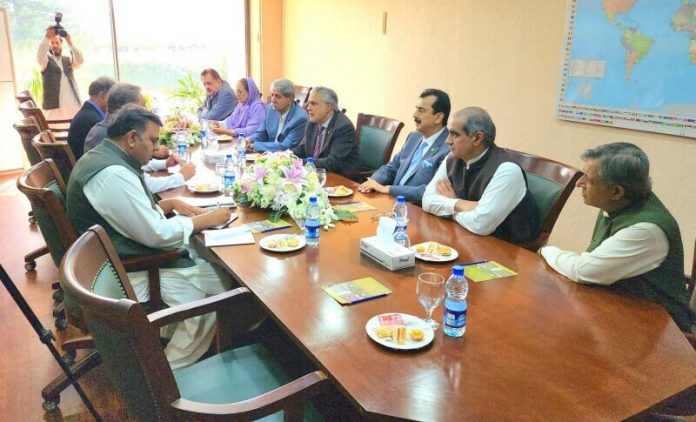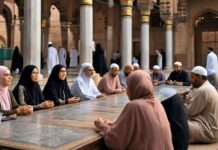Pakistan’s political landscape has been marred by a prolonged impasse over the timing of general elections in the country, which has fueled political tensions and raised concerns about the country’s democratic process. The two main players in this political stalemate are the Pakistan Democratic Movement (PDM) and the Pakistan Tehreek-e-Insaf (PTI).
As the country’s political scene continues to evolve, both sides have been engaged in negotiations to try and find a solution to the deadlock. The latest round of negotiations between the PDM-led government and the PTI was scheduled to take place at 11 am, but Senate Chairman Sadig Sanjrani announced a change in timing to 9 pm, citing the busy schedules of committee members from both sides. The new timing was intended to facilitate discussions on pressing issues facing the country.
However, there seems to be a lack of faith in the intentions of the PDM-led government by some officials, including PTI Secretary General Asad Umar, who has expressed concern about the government’s intentions.
PTI Chairman Imran Khan
PTI Chairman Imran Khan has proposed simultaneous elections, but only if the PDM dissolves all assemblies before May 14, the date set for Punjab’s polls by the Supreme Court.
While negotiations continue, some officials have spoken out against them. For example, Pakistan Defence Minister Khawaia Asif has called the ousted prime minister a “confused person” who backtracks on his decisions and has expressed doubt about the negotiations. Similarly, Federal Minister Mian Javed Latif has voiced his disagreement, stating that negotiations should not be conducted with terrorist groups, highlighting the growing divisions within Pakistan’s political scene.
The impasse over the timing of the general elections has led to political tensions, and the Supreme Court has urged the parties to find a solution to the ongoing stalemate. However, in the April 25 hearing, the apex court acknowledged that it cannot force parties to hold negotiations, indicating that the resolution to the deadlock may not be imminent.




